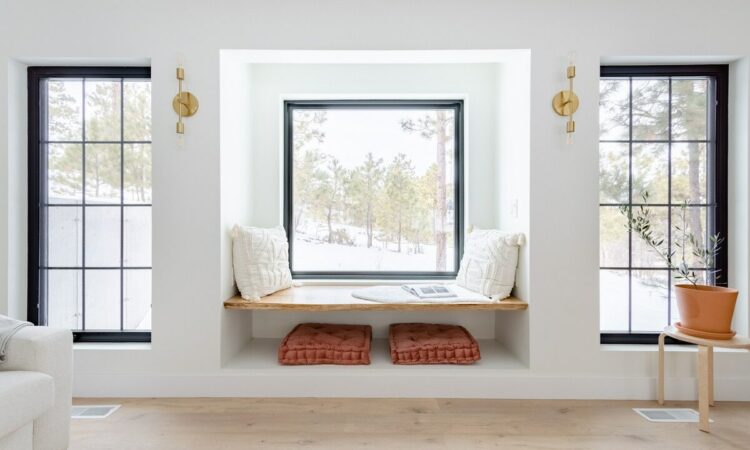Much like the rest of the United States, I first began to self-isolate and work from home almost a year ago. I quickly appreciated the privilege of living alone: If I had COVID-19, I could quarantine easily without putting others at risk. But many of us do live with others, and the slightest possible symptom of illness—or knowledge of having come into contact with the virus—is enough to put any roommate or loved one on edge.
If you or someone you live with has already been inoculated with a COVID-19 vaccine, this might be less of a concern. But while the rest of us wait to get vaccinated, it doesn’t hurt to ask: If I can’t quarantine at home, what are my best options?
Many local governments have isolation programs for those with a confirmed case of COVID or those who are exhibiting symptoms of the virus, and cannot quarantine at home. For example, New York City is offering hotel rooms where you can self-isolate, free of charge, if your home does not allow for adequate physical distancing, or you live with someone especially vulnerable to COVID.
Participation in these programs comes with various qualifications. (One New Yorker who called the city’s isolation program shared his experience with Traveler last month: “You call the hotline, someone asks questions, and a taxi picked me up that night.”) So if you live somewhere that has no such offerings, you might have to take matters into your own hands.
When I visited Los Angeles for the holidays, I completed a 14-day post-travel quarantine in an Airbnb upon arrival. During my stay, I never expressed symptoms and—thanks to rigorous safety precautions that involved double-masking and face shields on the plane—still haven’t since I returned to New York. But if I had, say, begun to lose my sense of smell and taste or discovered that I had come into contact with the virus, should I have told my host?
When I reached out to Airbnb to ask, they sent me a link to an announcement about their Health Safety Attestation. It allows hosts to ask guests if they have COVID symptoms or have been “knowingly been recently exposed” to the virus. The goal, says Airbnb, is to “empower hosts with information about health and safety that may be relevant for their preferences and needs.”
With that knowledge, a host can point to Airbnb’s Quarantine and Isolation Stays Policy, which plainly states that, “Guests who present risks of infection due to a positive diagnosis/test, symptoms, or exposure to a confirmed infection case should not use Airbnb for the purpose of self-isolation.” (If a host must cancel a guest’s stay due to COVID, the guest gets a refund. If a guest must cancel their stay because they have COVID, they will still get a refund.)
On the other hand, when I asked VRBO about quarantine policies, a representative replied: “VRBO does not allow shared spaces on our platform. This means guests will always get the entire space to themselves and will never have to share the property with the host, which makes VRBO an ideal lodging option for guests who need to quarantine or self-isolate.” They also shared stories about hosts who offered their vacation homes as emergency housing for healthcare workers who wanted to avoid exposing their families to COVID.
As for hotels, they expect their guests to behave in good faith. At Hotel Figueroa in Los Angeles, the front desk told me they can’t ask for medical information (beyond temperature checks) but trust that guests aren’t knowingly promoting community spread. At the Millennium Hilton New York Downtown, a manager said that someone isolating away from a roommate with COVID would be welcome, but referred those who’ve tested positive to the city’s COVID Hotel Program.
In theory, someone who has COVID but is asymptomatic could discreetly check into a hotel. But in our unprecedented times, we all must be honest with ourselves and each other, in the interest of public health. “We encourage transparency,” says a VRBO representative. “It’s not mandatory to disclose your purpose of travel but doing so can help the host better accommodate your needs.”
This was a sentiment echoed by various bed and breakfasts I called, especially Dena Finneran of Caldwell House in New York’s Hudson Valley. By being honest, an inn might be able to place you in a room that permits self-isolation—a private entrance, even with an outdoor space—while keeping you away from a smaller number of people compared to a hotel. Whereas dishonesty puts lives in danger. “I would not want someone to just come in and then not tell me [they’re sick] and then 24 hours later, my staff has COVID,” says Finneran.
When you need to isolate outside your home, you’re doing it to protect those you love. Don’t forget to also protect those looking after you. “Kindness helps,” says Finneran. “The pandemic is something beyond all our control. We all have to work together.”
We’re reporting on how COVID-19 impacts travel on a daily basis. Find our latest coronavirus coverage here, or visit our complete guide to COVID-19 and travel.
Source: Read Full Article
